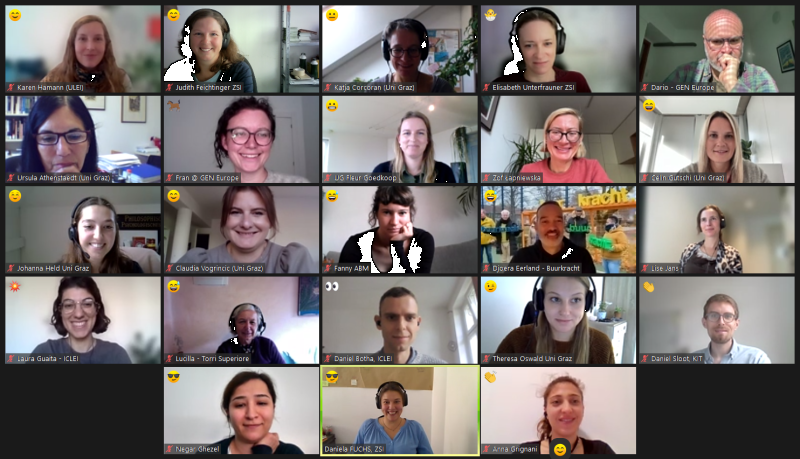An energy-community enabling community

“An energy community-enabling community” - that's how our advisory board member Prof. Konrad Lachmayer described the EC² consortium in the feedback session of our last consortium meeting, held online on October 9th.
The meeting was a chance to take stock as we enter the final six months of the project: highlights included a detailed dive into the preliminary results of research by our partners in the Universities of Leipzig and Groningen on the relationship between energy citizenship and energy community membership. Their work also explores the factors - motivational, diversity and others - that influence individuals’ willingness to join energy communities. From colleagues at the University of Graz, we heard about the process of empirical testing of our digital tool for energy citizens, which will soon be ready to launch.
Our policy partners shared their strong progress developing policy recommendations, with three policy briefs already published. Of particular interest to the meeting was the highly-anticipated upcoming brief on coal regions, which will provide novel recommendations for these regions that face unique challenges. Meanwhile, the Community Energy Academy continues from strength to strength, with hundreds of registrants and upcoming modules on finance and empowerment to look forward to.
During the afternoon we heard feedback from our advisory board, who shared their favourable impressions of our collaboration thus far and made valuable suggestions for the final stretch of the project. These included strengthening our focus on our concept of energy citizenship (rather than energy communities alone). Ideas already emerged regarding the future of the project’s resources, like the Community Energy Academy, to ensure their longevity.
We look forward to the final months of the project, which promise thought-provoking results from our research on energy community set-up, the launch of practical tools for citizens and municipalities, and further recommendations for policymakers in our upcoming policy briefs.







